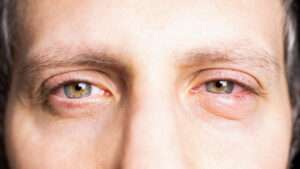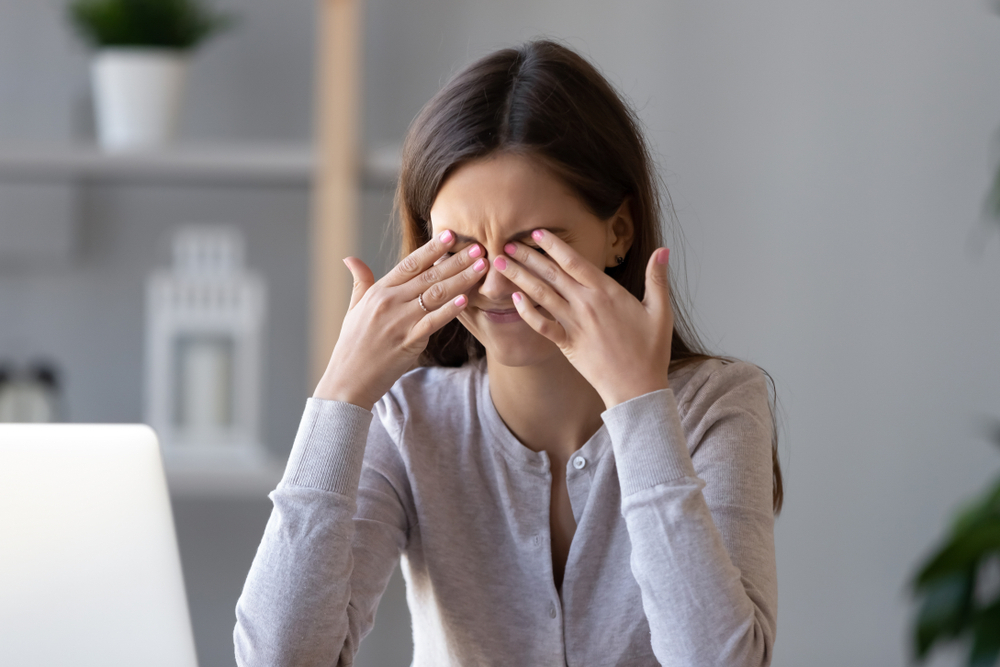Winter usually means toasty fires and hot coffee. Yet for millions of patients with eye allergies, winter can be a never-ending barrage of irritating symptoms. We understand how difficult winter eye allergies can be. As a result, he helps patients across Karachi find relief from their symptoms. The cold can affect our eyes regardless of how we feel about winter and its weather. Read on to discover how cold weather affects your eyes and how you can protect your vision.
Cold Weather, Dry Air & Your Eyes


You can get dry eyes when it’s cold outside. Even if you prefer to stay indoors next to an electric heater, the air inside of your house is often drier during the winter. You experience lower humidity levels in your home as the cold seeps in. As you turn up the heat to get warm, the air becomes even drier. Cold temperatures and low humidity may dry out your eyes, but some people experience the opposite. Cold temperatures can also cause excessive tearing, which can lead to blurry vision.
Winter Colds & Your Eyes


The winter season is typically a time of colds and flus. You might not realize that viral infections, like a cold, can also affect your eyes. A viral conjunctivitis is sometimes associated with an upper respiratory infection, such as a cold. Conjunctivitis, also known as pink eye, is an inflammation of the membrane that lines the white part of the eye and covers it. An eye can be affected by viral conjunctivitis on one or both sides. Red and itchy eyes, excess tears, and a gritty feeling are common symptoms. People can also experience a discharge from their eyes that forms a crust at night. Seek treatment and evaluation from an eye doctor if you or your loved ones are experiencing these symptoms.
Indoor Allergens & Your Eyes


During the winter, the cold weather outside is not the only danger to your eyes. Allergies can also damage your eyes. Despite what you might think, many people also experience allergy symptoms during the winter. Indoor allergens, such as animal dander and dust mites, may be more prevalent during winter. During the winter, you’re more likely to close the windows, which reduces ventilation. Indoor air can be suffocated by allergens when it is less ventilated. You may be affected by winter allergies in the same way as you are by allergies in warmer weather. Symptoms of winter allergies include red, burning, and watery eyes, as well as stuffy, itchy, or runny noses, sneezing, and coughing. You should consult your primary care physician if you suspect you have indoor / winter allergies.
Tips to Protect Your Eyes During the Cold Months
It is clear that winter weather is not always easy on the eye. In spite of the harsh weather outside and the dry and stuffy air inside, you can do several things to protect your eyes this winter, including:
- Keep eyes moist: A common winter weather hazard is dried, irritated eyes. Stay hydrated this winter to keep your eyes moist. Medications that can cause dry eyes should also be considered. You may find that some allergy medications or sleep aids can be drying. If you develop dry eyes or are worried that you might be getting dry eyes, schedule an eye exam and talk with your eye doctor about the appropriate eye drops for you.


- Wear sunglasses: Despite the cold, you still need UV protection for your eyes. Protecting your eyes during the winter is vital. Even in overcast weather, UV rays penetrate the eye. Top ophthalmologists recommend wearing sunglasses or goggles with UV protection when spending time outdoors in the cold, just as you would during the summer.


- Avoid infection: Viruses and bacteria can enter your body through your eyes. Many viruses cause illness during the winter months. Handwashing frequently, avoiding touching your nose and mouth with unwashed hands, and getting enough sleep will decrease your risk of developing an infection.


- Decrease indoor allergens: You can reduce your chances of allergy symptoms, including those that affect your eyes, by taking some simple steps. Use allergy-proof pillows and comforters, and wash your bedding in hot water about once a week. You should also vacuum regularly if you have carpets and/or pets.


- Divert the heat away from your face: Your eyes can be dried out by blasting your car’s heater. Make sure the heating vents in your car are pointed away from your face when you turn the heat up.


We hope these tips will help you avoid any eye problems this winter.
To schedule an appointment with one of our ophthalmologists or to ask any questions about your eyes or vision, please contact us at (021) 37441943.
